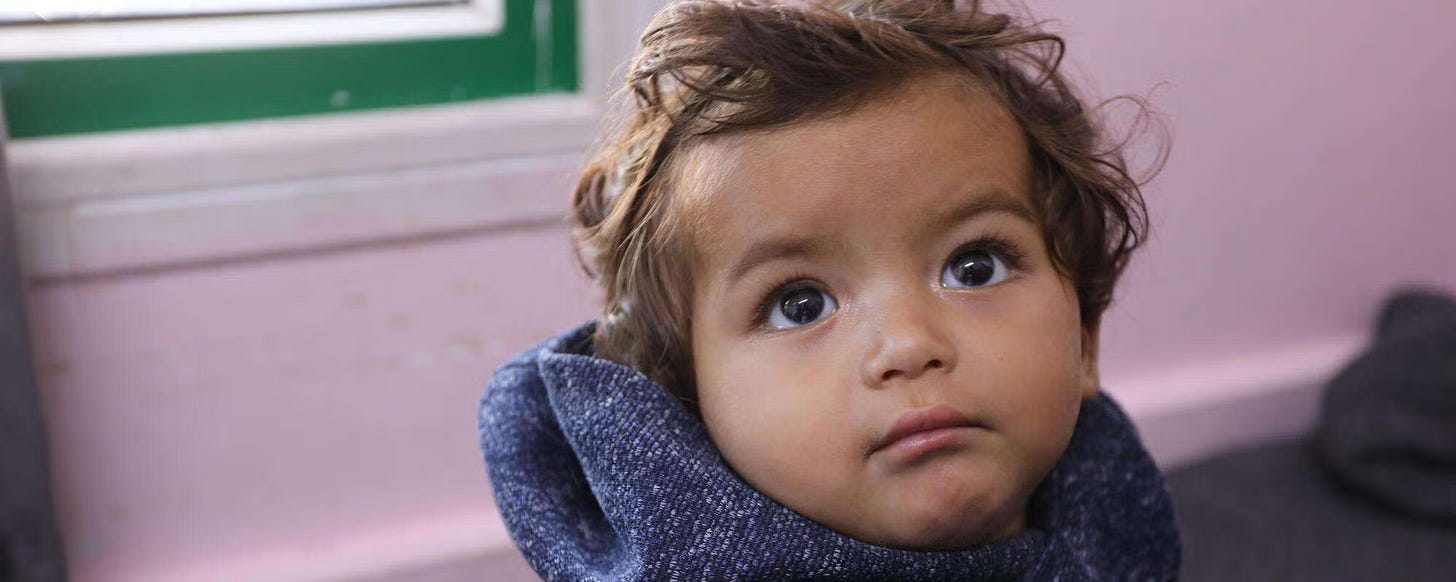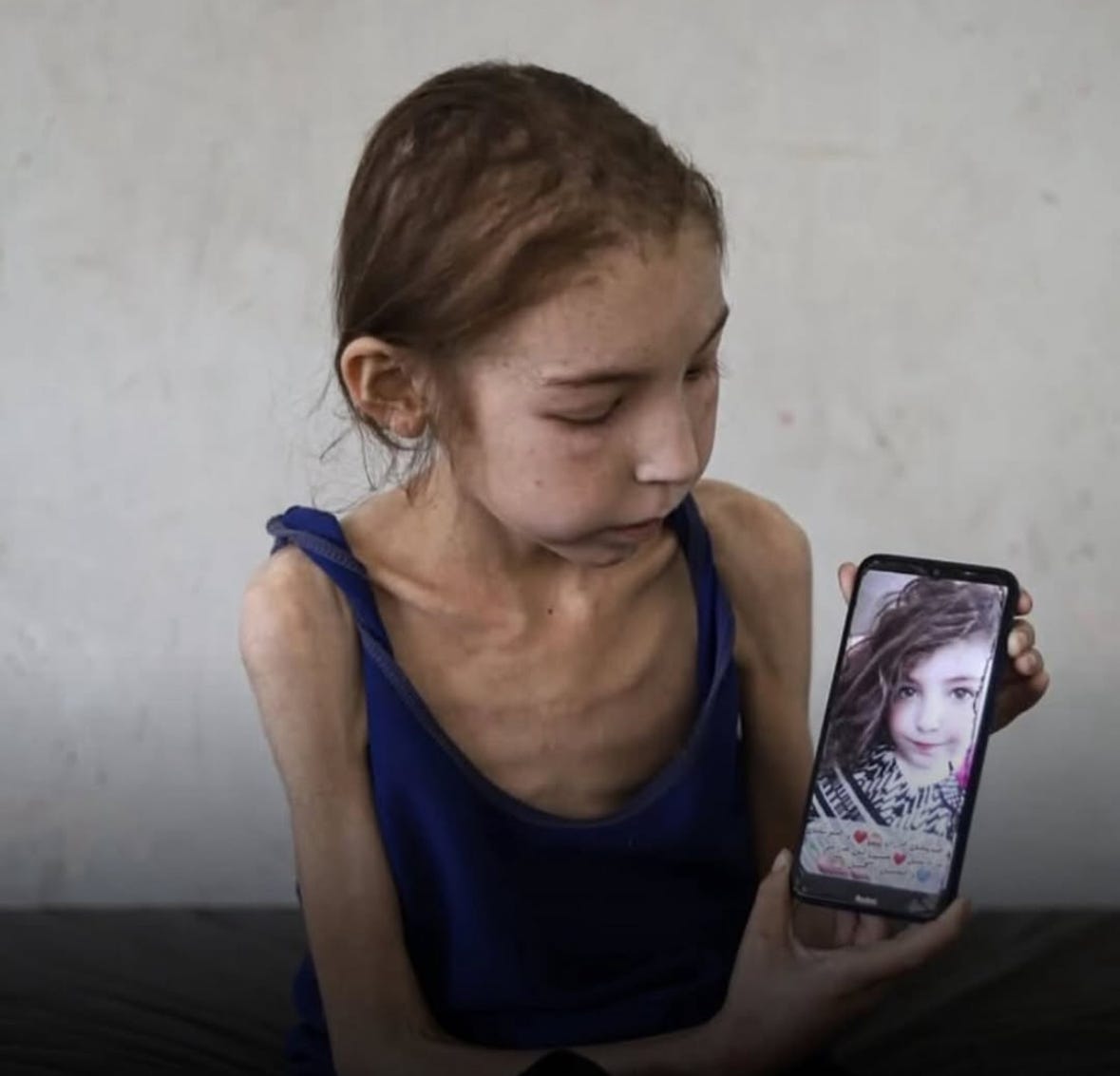Withholding Aid From Palestinians is Bringing Infants and Children to Another Dire Breaking Point
If formula and food are not urgently distributed in the next 48 hours, thousands of children and babies in Gaza will starve to death.

As a child advocate here in the United States, I simply cannot be silent about the atrocities against children worsening (somehow even more) in Gaza.
As the humanitarian crisis in Gaza deepens, children—especially infants and babies—are paying the highest price. Medical organizations and international agencies are issuing increasingly dire warnings, yet lifesaving aid remains obstructed. Without immediate and unrestricted humanitarian access, the situation threatens to become one of the worst child health disasters in recent history.
According to Doctors Without Borders (Médecins Sans Frontières), the conditions in Gaza are “catastrophic” for Palestinian children. Hospitals are overwhelmed, lacking basic supplies like oxygen, painkillers, and infant formula. Clean water is scarce. Malnourished and injured children lie untreated in overcrowded wards, while their caregivers—often displaced or injured themselves—struggle to provide even basic comfort.
Malnutrition is spiraling. The UN Relief and Works Agency (UNRWA) warned this week that malnutrition in Gaza could rise “exponentially” unless access to food, medicine, and clean water improves immediately. In a region where 70% of the population are children under 18, the implications are devastating. Infants, whose nutrition and health are especially fragile, are at risk of irreversible developmental harm—or death—due to starvation and preventable diseases.
Despite growing international pressure, meaningful aid delivery remains stymied. A recent report revealed that although aid trucks have entered Gaza, the vast majority of this aid has not reached the civilians who need it most. The UN says bottlenecks, ongoing violence, and bureaucratic restrictions continue to delay distribution.
The political consequences are equally alarming. Retired Israeli general Yitzhak Brick, quoted in NBC News, warned that the current strategy risks making Israel a “pariah state.” He emphasized that the blockade of humanitarian aid not only violates international norms but also undermines Israel’s long-term security and global standing. He understands the world is watching. The United States and United Kingdom have publicly supported increasing aid flows, yet there is no sign of the Trump Administration suddenly taking action to help Palestinian kids when they barely give a damn about the kids right here at home.
And there is a massive divide between international pledges and the reality on the ground. Despite high-level diplomatic promises to support aid convoys, many remain halted at borders, or are looted or destroyed before reaching their destination. Gaza’s children, caught in this bureaucratic and political gridlock, are dying as the world debates.

Among many notable child advocates pushing for action: Miss Rachel. The beloved child development content creator has be working with the Palestinian Children’s Relief Fund to spread awareness of the devastating conditions kids in Gaza are being forced to endure. She posted the following plea for humanity and empathy on social media:
“Please imagine a baby you love. Do you think she is different than that baby? Do you think Palestinian children are not like other children? You must have convinced yourself they are or how could you look away? How could you be silent? How could you watch 15,000 children be killed?”
I’m with Miss Rachel This is not just a humanitarian emergency. It is a moral reckoning. Blocking aid to babies and children—some of the most vulnerable kids on the planet—is indefensible. International humanitarian law obligates all parties to facilitate rapid and unimpeded aid access in conflict zones. The continued failure to do so in Gaza is a collective failure of humanity, and a clear failure of the Israeli government under Netanyahu.
Children don’t choose sides in war, yet they are dying in Gaza in growing numbers—millions sick, hungry, and without any resources. Every hour of delay costs more young lives. The time to act is not tomorrow or next week. It is now.




